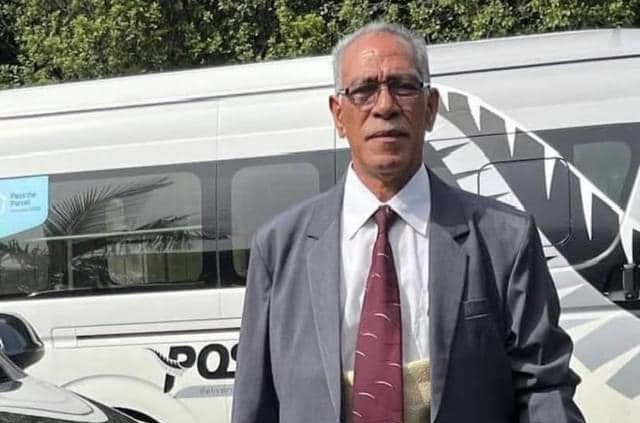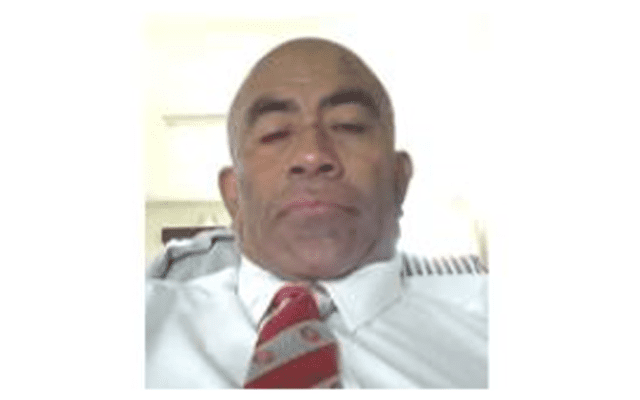COMMENTARY: The recent concerns raised by a Supreme Court Judge during a court case sentencing have brought to light whether the police in Tonga are being proactive enough in combating illicit drugs.

They also beg the question of whether law enforcement is fully utilizing all available opportunities they have seized to effectively address the growing issue of drug-related activities in the country.
Justice Nicholas Cooper had been concerned about the police’s failure to disclose what appeared to be names of drug ringleaders listed in “note books” confiscated by the Police.
Mr Cooper commented when sentencing a drug dealer, Palatoni Laimani, to seven and half years in prison in December.
He described Laimani’s case as very serious, and “it was large scale commercial supply”. He said, “the presence of a firearm in the context of this drug dealing I consider a serious aggravating feature”.
“No one possesses these amounts of illicit drugs without connections to people higher up the supply chain. It stands to reason that Mr. Laimani was dealing with others more heavily involved in illicit drug supply and so in turn, he forms part of serious organised criminal network”, Mr Cooper said.
The Judge believed that Laimani’s case presented a significant opportunity for the court to gain insight into the individuals acting as ringleaders behind him had the Police worked on the details of the “dealer lists” and submitted them as evidence during the hearing.
He also said the Police should have done more than just charging Laimani for possession of the 155.90 grams of methamphetamine, a 12-gauge shotgun, a set of scales and 1699 empty dealer packs.
Mr Cooper said the notebooks, according to information provided to him, appeared to be lists of people at the level of drug kingpins.
The Judge believed that Mr Laimani’s on-site admissions to Police about selling methamphetamine for profit indicated that the documents likely pertained to individuals who manage larger quantities of illicit drugs.
“None of these notebooks have been provided or any detail of the contents placed before me save they “contained a list of names and numbers””, Mr Cooper said, according to the court judgement.
He said that the police should have also charged Laimani with additional counts related to drug activities after the discovery of the note books.
The judge said: “If a person is caught by police in possession of “dealer lists”, that is prima facie strong evidence they have possessed the drugs referred to and ought to be charged and ultimately sentenced for that criminality. To fail in this is to fail in the war against drugs”.
He was also concerned about the police’s lack of assessment regarding Laimani’s risk of reoffending and the potential harm he could pose to society.
However, he said that in both cases it must be at least medium harm as this was a calculated and planned criminal enterprise he was running.
It is crucial for the police to take Mr Cooper’s comment seriously and provide clarification.
This incident is not the first time that concerns have been raised regarding the authorities in Tonga responsible for combating drugs.
The public deserves transparency and accountability in matters like these. It would be beneficial if the police could clarify why they did not follow through with the actions Mr Cooper believed were necessary in this situation.
King’s concerns
In 2021, the king criticized the government, saying he was fed up with the House and the government giving him the same responses every year without further resolving these issues.
He was deeply troubled by the daunting challenges posed by the direct consequence of the rise in illicit drug use.
Last year, he also expressed his grave concern at the level of the illicit drug crisis that has infiltrated every part of society, from villages to schools and the government.
Recent court cases reported by Kaniva News and various other media outlets have revealed a troubling trend in Tonga: the involvement of some families in the illicit drug trade.
These cases indicate that parents and their children are participating in this illegal business, raising concerns about the impact on family dynamics and the broader community.
Corruption
We have also reported cases in which authorities had been convicted and sentenced for drug-related activities.
Last year, a Recruit Prison Officer of His Majesty’s Prison, Hu’atolitoli, was arrested, suspended and was under a criminal investigation for alleged possession of illicit drugs.
In early 2024, a senior bank official working at the National Reserve Bank of Tonga (NRBT) and his sister were charged after being caught with 15 kilograms of methamphetamine.
In 2019, “a senior customs officer was arrested for his involvement in importing a shipment of 6 kg of methamphetamine into Tonga along with quantities of cannabis, cannabis oil, arms and ammunition from the United States”.
It is essential that every individual in Tonga, particularly those in positions of authority, recognizes their responsibility in the ongoing battle against drug-related crimes. They should actively seek out and seize every opportunity to implement effective strategies and initiatives aimed at mitigating the negative impacts of such criminal activities on society.







